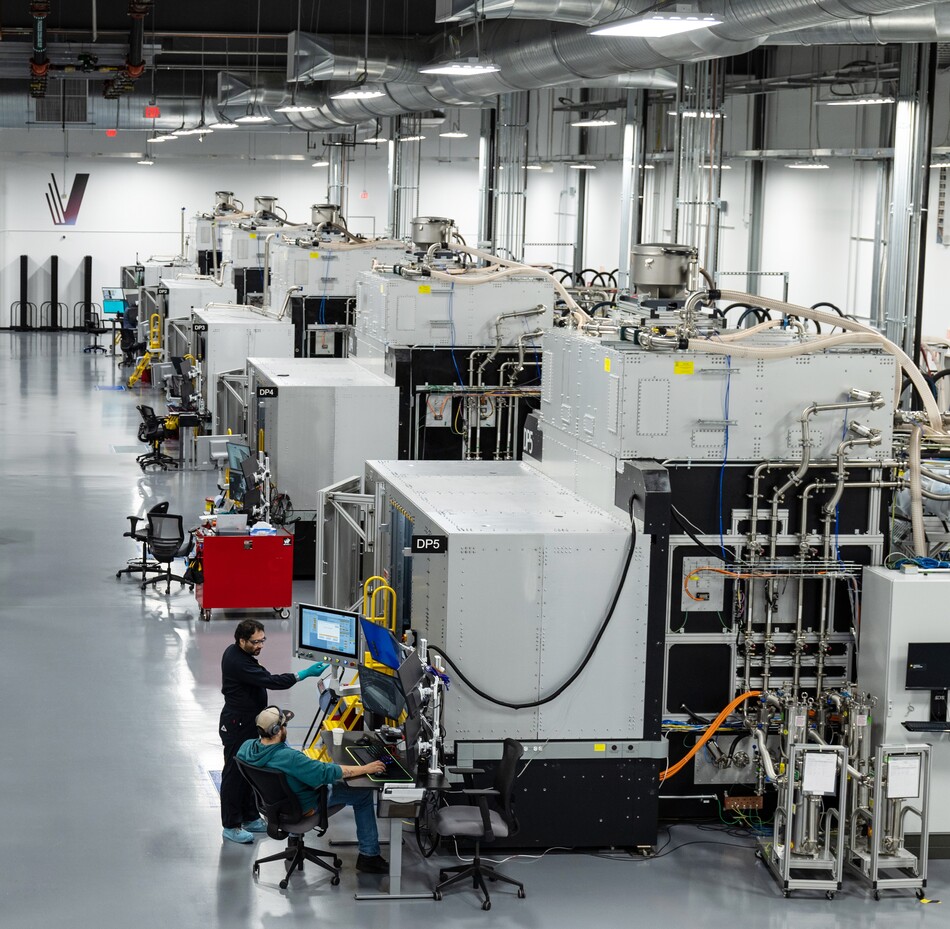For this month’s Sustainable Business Spotlight, we reached out to VulcanForms, a billion-dollar, innovative digital manufacturing company with a facility here in Devens that showcases some exciting sustainability practices.
VulcanForms has been featured in publications like the New York Times, Financial Times, and The Boston Globe, where it was dubbed “the most interesting startup in America.”
The following interview with Anupam Ghildyal, Vice President of Technology and Corporate Development at VulcanForms was conducted over email and has been lightly edited for clarity and formatting purposes.
Describe VulcanForms in one sentence.
VulcanForms builds and operates advanced digital manufacturing infrastructure that enables the world's critical industries to innovate, grow, and deliver sustainable impact.
Does VulcanForms have sustainability goals or aspirations?
VulcanForms is committed to helping build a more sustainable future.
In the U.S., manufacturing accounts for almost a quarter (23%) of direct carbon emissions, according to the Environmental Protection Agency. Additive Manufacturing is an enabler for a significant reduction in carbon emissions.
VulcanForms has designed, developed, and operates the highest throughput metal additive manufacturing facility in the world. We operate advanced digital manufacturing infrastructure, combining breakthrough additive manufacturing technology with precision machining, heat treatment, surface treatment and automation. These technologies are tied together by a Digital Thread to ensure the highest level of quality assurance for our customers while maintaining high yield and throughput. We call this the Vulcan Production System.
Fully integrated, digital manufacturing enabled by additive, automated precision machining and heat treatment is the only solution that can make an impact at scale. This is a fully electric process—and therefore can use a clean electricity grid—and uses powder as a universal feedstock for all shapes. Scaling digital manufacturing can, in turn, scale manufacturing of high-temperature heat exchangers, high efficiency jet engines, highly efficient industrial turbomachinery, critical components for hydrogen production, fluid manifolds for flow batteries, more efficient cooling devices for data centers and power electronics, highly efficient small modular nuclear reactors, more efficient electric engines, and other climate tech products. This shared production capacity can de-risk and accelerate the deployment of many low-carbon technologies.
What makes "additive manufacturing" sustainable?
Additive manufacturing offers several sustainability benefits that make it a more environmentally friendly manufacturing process compared to traditional methods, including:
Material efficiency: Additive manufacturing builds objects layer by layer, only using the necessary amount of material for the specific design vs subtractive manufacturing methods that often create significant waste during the cutting and machining processes. Additive manufacturing can reduce metal waste by up to 90%.
Design optimization: With additive manufacturing, complex geometries and structures can be created that are difficult or impossible to achieve using traditional manufacturing methods. This design freedom allows engineers to optimize parts for functionality and lightweighting, reducing material usage and improving product performance.
Localized production: Additive manufacturing enables decentralized and localized production. This reduces the need for long-distance transportation of goods, which can result in lower greenhouse gas emissions and energy consumption associated with transportation.
On-demand production: Additive manufacturing allows for on-demand manufacturing, meaning products can be produced as needed, reducing the need for large inventories and associated waste. This "just-in-time" production model minimizes surplus inventory that might go unused and end up in landfills.
What products do you often produce?
The Vulcan Production System creates universal production capacity where versatility in utilization is achieved by connecting the core principles of lean manufacturing with digital production technologies through a digital thread. Changing a line of code enables the Vulcan Production System to entirely and in an instant change the products we create - without retooling, without additional setup times, in the same factory. The result is the most flexible, resilient and efficient production system. There is no limit to the new design and performance innovations that this universal capacity can enable to accelerate climate-tech innovation.
Many of the products that VulcanForms is developing and/or manufacturing for its customers include next-gen highly efficient engines, gradient metal foams for high performance products, microchannel heat exchangers for better thermal management, weight-optimized structural components, and others.
VulcanForms is also playing a key role in design, development and manufacturing of next-generation orthopedic implants that enable better bone integration leading to faster recovery and better patient outcomes.
What does the future look like for VulcanForms here in Devens?
Offshored manufacturing is not coming back in its analog form. Digital-first production technologies, led by additive manufacturing, enable more innovative, resource efficient, and resilient supply chains. VulcanForms continues on our mission to rethink manufacturing and accelerate the pace of innovation, as well as help build a more sustainable future – starting right here in Devens.
*
The Devens Forward team would like to thank Anupam Ghildyal at VulcanForms for their time and interest in creating this spotlight with us. Learn more about VulcanForms on their website or contact them via contact@vulcanforms.com
Previous Post
Local Sustainable Food
Next Post
Climate Resilience & Public Safety: An Interview with Devens Fire Chief

